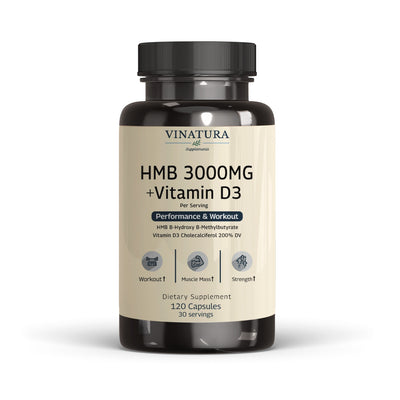
Tongkat Ali Vs. Tribulus: Comparison And Combination
While Tongkat Ali is more widely studied and used, Tribulus is also a cost-effective alternative for boosting testosterone with fewer side effects. For a detailed comparison of these herbs and guidance on their combined use, please refer to the following article.
Before exploring further, please read the disclaimer located at the end of this webpage.
Key Takeaways
- Tongkat Ali and Tribulus both naturally boost testosterone in men.
- Tongkat Ali is more widely researched and commonly used.
- However, some users report that Tribulus offers better results with fewer side effects.
- Tribulus is also a more affordable option for improving testosterone levels.
- It's recommended to use products from reputable brands that contain both
- Tongkat Ali and Tribulus, rather than combining them at home without expert guidance.
Comparison Table Between Tongkat Ali Vs Tribulus
For easy to understand and compare these herbs, we provide you this comparison table following 10 criterias. Let’s grasp the summary!
| Criteria | Tongkat ali | Tribulus |
| Origin | Southeast Asia | Europe and Central Asia |
| Studies | Moderate | Moderate (fewer than Tongkat Ali) |
| Population | High | Less than Tongkat Ali |
| Historical Use | Ulcers, dysentery,anti-aging remedy, aphrodisiac… | Diuretic, a tonic for the heart and liver, and an aphrodisiac, menstrual disorders, infertility… |
| Main Benefits | Increase testosterone | Increase testosterone |
| Other Benefits | Improves sexual performance, increases fertility, reduces stress | Improves sexual performance, increases fertility, reduces stress (more limited research) |
| Side Effects | Headache, nausea, vomiting, dizziness | Stomach pain, cramping, and diarrhea |
| Dosage | 200-400 mg per day | 85–250 mg taken 1–3 times per day |
| Main Compounds | Eurycomanone | Protodioscin |
| Mechanism | Increase testosterone | Increase testosterone |
| Price | Higher than Tribulus | Lower than Tongkat Ali |
While they share similar benefits and active compounds, they differ in their origins, the extent of research conducted, and their price points. If you would like to explore each herbs, let's move on to the below parts.
Overview of Tongkat Ali
Tongkat Ali (Eurycoma longifolia) is a medicinal herb renowned for its potential testosterone-boosting properties. Native to Southeast Asia, it is commonly utilized in traditional medicine for enhancing energy, improving sexual performance, and reducing fatigue.
The Origin of Tongkat Ali
Tongkat Ali is a tree native to Asian countries such as Malaysia, Thailand, and Indonesia. Its roots have been used for centuries in traditional medicine to treat a variety of ailments, from physical fatigue, fever, malaria and even aging [4].
In recent years, it has gained more attention due to its purported use as a testosterone booster and sexual performance enhancer.
Historical Uses of Tongkat Ali
Historically, Tongkat Ali has been used by indigenous communities in Southeast Asia for centuries as a health tonic, antimalarial agent, aphrodisiac, and post-partum medication [6].
The roots were typically boiled and consumed as a traditional "tea" for various ailments. Traditional healers prescribed it for fever, ulcers, dysentery, and even as an anti-aging remedy.
Its aphrodisiac properties have earned it a reputation as "Malaysia's home-grown Viagra" These historical uses have set the foundation for ongoing research into the properties of this remarkable herb.
The Benefits of Tongkat Ali
In the contemporary setting, Tongkat Ali continues to offer a myriad of health benefits supported by modern scientific research.
Among these are its testosterone-boosting properties, particularly beneficial for men experiencing low testosterone levels.
Besides the main benefits, there are other effects that are recognized by science and traditional uses.
- Testosterone-boosting properties.
- Enhance muscle strength and mass, improve mood and energy levels, and optimize sexual performance and health.
- It may have potential anti-stress effects and improve mental well-being.
- Possesses antimalarial and anti-ulcer properties.
- Preliminary studies suggest that Tongkat Ali may have anti-cancer properties.
- Traditional use as an anti-aging remedy, as it may combat age-related hormonal imbalances.
Side Effects of Tongkat Ali
When taken in appropriate dosages, Tongkat Ali is generally safe and free of side effects.
However, the exact dosage may vary depending on individual health conditions and current medications. It is therefore recommended to consult your doctor before taking Tongkat Ali supplements.
In general, long-term use of high doses of Tongkat Ali can interfere with sleep patterns or cause restlessness. Furthermore, Tongkat ali may lead to some side effects on the liver if taken in excess.
Read more: Tongkat Ali Vs Horny Goat Weed - How Do Them Work Well Together?
Overview of Tribulus Terrestris
The Origin
Tribulus Terrestris (Puncture Vine or Gokshura) is a flowering plant that has been popular and used for centuries in traditional medicine.
This herb is native to temperate and tropical regions of the world, widely cultivated in Europe, Asia, and North America nowadays [1].
From its traditional uses to modern scientific research, Tribulus is known for its potential health benefits.
It contains bioactive compounds and plant steroids that have been studied for their effects on boosting testosterone levels and sexual function.
Historical Uses Of Tribulus
In traditional medicine, Gokshura has traditionally been used as a diuretic, a tonic for the heart and liver, and an aphrodisiac. Chinese medicine practitioners also used it to treat menstrual disorders, infertility, and impotence.
In Eastern cultures, Tribulus Terrestris has been utilized as an essential component of Ayurveda - a traditional system of healing originating in India - for its potential health benefits.
Today, Tribulus Terrestris has gained wider recognition due to research into its potential benefits for male and female reproductive health.
Benefits of Tribulus Terrestris
The main active constituents of Tribulus are flavonoids, flavonol glycosides, steroidal saponins, and alkaloids, which have been studied to boost testosterone levels and sexual performance [3]:
- Increase testosterone levels, improving libido and fertility in men.
- Enhance female fertility, libido, and sex desire.
- Potentially relieve symptoms of premenstrual and menopausal syndrome.
- Anti-inflammatory properties that may aid in reducing blood sugar levels and cholesterol.
- Possess antioxidant properties.
- Reduce angina pectoris and other cardiac complications of diabetes.
- It may be beneficial in reducing diabetes by lowering blood glucose and lipid levels and through its antioxidant mechanism.

Side Effects of Tribulus Terrestris
Gokshura is generally well tolerated and safe for short-term use.
However, higher doses than recommended can cause mild side effects such as stomach pain, cramping, and diarrhea, headaches,... Additional side effects may include abdominal pain, nausea, vomiting, or constipation [2].
It is not recommended for pregnant or breastfeeding women due to the lack of sufficient research into its safety in these populations. Additionally, individuals on medications should consult a doctor before taking Tribulus Terrestris supplements.
Comparison Between Tongkat Ali and Tribulus Terrestris
Origin
Tongkat ali (Eurycoma longifolia) is a plant native to Southeast Asia, while Tribulus (Tribulus Terrestris) is a plant native to Europe and Central Asia.
Studies
There have been more studies on the effects of Tongkat Ali than on Tribulus. Some studies have concluded that Tongkat Ali can increase testosterone levels, improve sexual function, and release stress.
Studies on the effects of tribulus are more limited, but some studies have shown that it can also increase testosterone levels and improve sexual function.
Population
Tongkat ali is more commonly used in Southeast Asia, while Tribulus is more commonly used in Europe and Central Asia.
Both Tongkat ali and tribulus are utilized by both men and women, however, they predominantly impact men. Despite this, there is still limited research on the effects of these natural herbs on women.
Benefits
Tongkat ali is also claimed to have benefits for:
- Energy levels
- Muscle strength
- Bone health
- Cognitive function
Tribulus is also claimed to have benefits for:
- Athletic performance
- Kidney health
- Liver health
Mechanism
The exact mechanisms by which Tongkat ali and Tribulus work are not fully understood.
However, it is believed that they may work by increasing testosterone levels, which can have a number of beneficial effects on the body.
Side effects
The side effects of tongkat ali and tribulus are generally mild and may include:
- Headache
- Nausea
- Vomiting
- Dizziness
- Insomnia
More serious side effects are rare, such as damaged liver in case it exceeds dosage.
Dosage
The recommended dosage of Tongkat ali and Tribulus varies depending on the product and the individual.
According to some studies, the recommended dosage for Tongkat Ali ranges from 200-400 mg per day, while for Tribulus, it ranges from 85–250 mg taken 1–3 times daily.
It is crucial to carefully follow the directions on the product label.
Historical use
Tongkat ali has been used for centuries in traditional medicine in Southeast Asia. Tribulus has also been used for centuries in traditional medicine in Europe and Central Asia.
Price
The price of Tongkat ali and Tribulus varies depending on the product and the source.
Generally, Tongkat ali is more expensive than Tribulus.
Active compounds
Tongkat ali contains active compounds such as eurycomanone and other eurypeptides, while Tribulus contains protodioscin and other protodioscin-related compounds.
Moreover, both tongkat ali and tribulus also share compounds like flavonoids and alkaloids, which contribute to their similar effects.
Explore more: Cistanche Vs Tongkat Ali - The Comprehensive Comparision
Which One Is Better - Tongkat Ali Vs Tribulus?
If you seek a supplement with consistently proven effects on testosterone levels, Tongkat Ali may be your best option.
Conversely, Tribulus offers a more affordable choice with fewer side effects. A Reddit user, Less-Shift-398, reported using both supplements and highlighted that Tongkat Ali requires monitoring its impact on E2 (estrogen) levels, often necessitating cycling. Tribulus, however, can be used daily without such concerns [14].
To determine the most suitable supplement for your needs, consult your healthcare provider. They can evaluate your specific requirements and recommend the best option.
Additionally, you can consider using a combination of Tongkat Ali and Tribulus. However, many are concerned about potential side effects and safety with this approach. For more insights on this, continue reading the next section.
Can You Take Tribulus and Tongkat Ali Together?
The truth is, there is no scientific research guaranteeing the safety of combining tongkat ali and tribulus together. However, some users have reported using them without any noticeable side effects.
Moreover, many supplement products today combine these herbs to enhance their effects or provide a variety of choices for users.
Do not recommend self-combining these two herbal remedies, but you can opt for pre-manufactured and tested supplements instead.
Also, it's essential to adhere to the manufacturer's usage guidelines and consult with healthcare professionals before deciding.
Conclusion
To sum it up, both Tongkat ali and Tribulus have the potential to help improve energy levels, cognitive functions, mental clarity and physical strength.
While there are some side effects associated with both of these supplements, they may be worth exploring if you are looking for a natural boost or to increase your performance.
In the end, consider the advantages and disadvantages and decide if you want to benefit from either option or combine them
Frequently Asked Questions
Are There Any Potential Side Effects Of Using Both Tribulus Terrestris and Tongkat Ali?
If you use the combination of Tongkat Ali and Tribulus, the answer is not sure because there is no scientific evidence. If you take the supplement, the side effects may happen, such as headache, nausea, vomiting, dizziness,...in case you take the excess dosage. Be sure to follow the manufacturer's recommended dosage guidelines and consult your healthcare provider before taking any supplement.
Is It Safe to Combine Tongkat Ali and Tribulus?
It is not recommended to combine tongkat ali and tribulus without consulting a doctor or pharmacist first. Another alternative solution is a supplement that combines Tongkat Ali and Tributus that have been pre-manufactured and tested for safety.
How Soon Can One Expect to Observe Results from Using Tribulus Terrestris and Tongkat Ali Supplement?
The results of taking a supplement will vary from person to person, as everyone's body chemistry is different. It also differs from manufacturer and dosage. However, some people report noticing an improvement in energy levels and sexual performance within a few weeks to 2 months.
What Alternatives are There That Might Be More Effective Than Tongkat Ali?
Potential side effects of using both Tribulus Terrestris and Tongkat Ali simultaneously could include headaches, nausea, vomiting, dizziness, and insomnia. More serious but rare side effects could include liver damage if the dosage is exceeded. Always consult with a healthcare professional before starting any new supplement regimen.
References
- [1] Saurabh Chhatre, Tanuja Nesari, Somani, G., Kanchan, D. M., & Sadhana Sathaye. (2014). Phytopharmacological overview of Tribulus terrestris. Pharmacognosy Reviews, 8(15), 45–45. https://doi.org/10.4103/0973-7847.125530
- [2] Elham Akhtari, Firoozeh Raisi, Keshavarz, M., Hosseini Seyed Hamzeh, Farnaz Sohrabvand, Soodabeh Bioos, Kamalinejad, M., & Ghobadi, A. (2014). Tribulus terrestris for treatment of sexual dysfunction in women: randomized double-blind placebo - controlled study. DARU Journal of Pharmaceutical Sciences, 22(1). https://doi.org/10.1186/2008-2231-22-40
- [3] Akram, M., Asif, M., Naveed, A., & Ahmad, K. (2011, August 18). Tribulus terrestris Linn.: A review article. ResearchGate; Academic Journals. https://www.researchgate.net/publication/260210811_Tribulus_terrestris_Linn_A_review_article
- [4] Shaheed Ur Rehman, Kevin Kyungsik Choe, & Hye Hyun Yoo. (2016). Review on a Traditional Herbal Medicine, Eurycoma longifolia Jack (Tongkat Ali): Its Traditional Uses, Chemistry, Evidence-Based Pharmacology and Toxicology. Molecules, 21(3), 331–331. https://doi.org/10.3390/molecules21030331
- [5] Serag, A., Zayed, A., Mediani, A., & Farag, M. A. (2023). Integrated comparative metabolite profiling via NMR and GC–MS analyses for tongkat ali (Eurycoma longifolia) fingerprinting and quality control analysis. Scientific Reports, 13(1). https://doi.org/10.1038/s41598-023-28551-x
- [6] Shankar Jothi, Thaigarajan Parumasivam, & Noratiqah Mohtar. (2023). Eurycoma longifolia: an overview on the pharmacological properties for the treatment of common cancer. Journal of Public Health in Africa. https://doi.org/10.4081/jphia.2023.2495
- [7] Surachai Kotirum, Ismail, R., & Nathorn Chaiyakunapruk. (2015). Efficacy of Tongkat Ali (Eurycoma longifolia) on erectile function improvement: Systematic review and meta-analysis of randomized controlled trials. Complementary Therapies in Medicine, 23(5), 693–698. https://doi.org/10.1016/j.ctim.2015.07.009
- [8] Khanam, Z., Chew Shwu Wen, & Irshad. (2015). Phytochemical screening and antimicrobial activity of root and stem extracts of wild Eurycoma longifolia Jack (Tongkat Ali). Journal of King Saud University - Science, 27(1), 23–30. https://doi.org/10.1016/j.jksus.2014.04.006
- [9] Bhat, R., & Karim, A. A. (2010). Tongkat Ali (Eurycoma longifolia Jack): A review on its ethnobotany and pharmacological importance. Fitoterapia, 81(7), 669–679. https://doi.org/10.1016/j.fitote.2010.04.006
- [10] Henkel, R., Wang, R., Bassett, S., Chen, T., Liu, N., Zhu, Y., & Mohd. (2013). Tongkat Ali as a Potential Herbal Supplement for Physically Active Male and Female Seniors-A Pilot Study. Phytotherapy Research, 28(4), 544–550. https://doi.org/10.1002/ptr.5017
- [11] Solomon, M. C., Erasmus, N., & Henkel, R. (2013). In vivoeffects ofEurycoma longifoliaJack (Tongkat Ali) extract on reproductive functions in the rat. Andrologia, 46(4), 339–348. https://doi.org/10.1111/and.12082
- [12] Talbott, S. (2013). Human Performance and Sports Applications of Tongkat Ali (Eurycoma longifolia). https://doi.org/10.1016/b978-0-12-396454-0.00053-9
- [13] Talbott, S., Talbott, J. A., George, A., & Pugh, M. (2013). Effect of Tongkat Ali on stress hormones and psychological mood state in moderately stressed subjects. Journal of the International Society of Sports Nutrition, 10(1). https://doi.org/10.1186/1550-2783-10-28
Author

Product Disclaimer
The dietary supplement products mentioned on this website are formulated based on scientific research and adhere to FDA guidelines for dietary supplements. However, the content of the articles has not been evaluated by the Food and Drug Administration (FDA) and is not intended to promote or endorse any specific product. Any products sold on this website are not intended to diagnose, treat, cure, or prevent any disease.
Opinions and Endorsements
Any claims, statements, or opinions expressed in the articles are those of the author(s) and do not necessarily reflect the views or opinions of the manufacturers of the dietary supplement products. The products sold on this website are separate from the content of the articles and are not directly endorsed or associated with the information presented here.
Liability Disclaimer
The author(s) of the articles, website, and manufacturers of the dietary supplement products do not assume any liability for any potential consequences arising from the use of the information provided in the articles. It is recommended that individuals consult with a qualified healthcare professional before making any dietary or lifestyle changes, including the use of dietary supplements.
Product Usage
Please refer to the product labels and packaging for specific usage instructions and guidelines for the dietary supplement products sold on this website.
Customer Support
For any concerns or questions regarding the dietary supplement products, please contact our customer support team, who will be more than happy to assist you.









Leave a Comment
Be the first to comment.
What do you think?